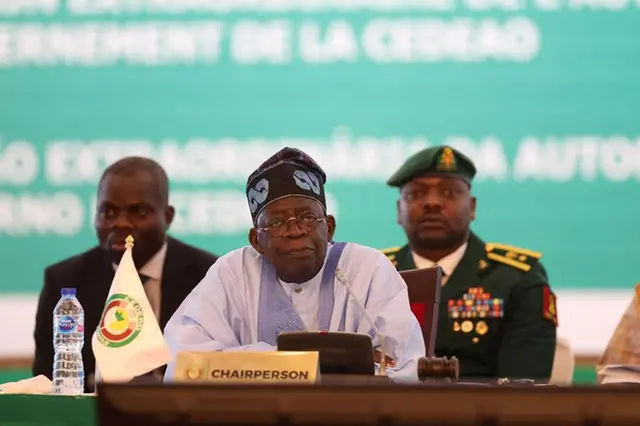

President says country “will get out of this turbulence”
Staff Writer, ZAWYA
August 1, 2023
Nigeria’s new President Bola Tinubu has outlined measures to cushion the impact of the removal of fuel subsidies in Africa’s biggest economy in the form of a 500 billion naira ($632 million) supplementary budget approved by parliament.
In a speech broadcast nationwide on Monday evening, Tinubu focused on various aspects of the economy that would benefit from the cash injection, including agriculture, manufacturing, small businesses, infrastructure, education and other social services.
Following his decision to remove fuel subsidies, transportation costs and food prices have skyrocketed in Africa’s most populous country. The naira’s devaluation – part of Tinubu’s new policies – has also accelerated inflation, which hit 22.8% in the year to June.
In 2022, the government spent $10 billion on the subsidy – causing widening budget deficits and soaring government debt.
In his speech the president admitted that Nigeria’s economy was going through a “tough patch” and that people were being negatively affected by the subsidy removal.
“The cost of fuel has gone up. Food and other prices have followed it. Households and businesses struggle,” Tinubu said. “I understand the hardship you face.”
Despite the hardship, Tinubu said there were no other options but to remove the fuel subsidy.
“I have consistently maintained the position that the fuel subsidy had to go. This once beneficial measure had outlived its usefulness,” he said.
“The subsidy cost us trillions of naira yearly. Such a vast sum of money would have been better spent on public transportation, healthcare, schools, housing and even national security.”
Pump prices for gasoline have nearly tripled since the announcement of the plan, which is one of a number of new market-focused measures he claims would help the economy grow more quickly during his term.
Transportation costs have risen, angering both the general public and unions. Fuel consumption has dropped sharply, according to the country’s oil regulator.
Millions of people and businesses that depend on fuel generators – due to a perennially erratic electricity grid – for power are struggling to cope with the steep prices.
“We will get out of this turbulence,” Tinubu said. “In a little over two months, we have saved over a trillion naira that would have been squandered on the unproductive fuel subsidy.”
(Editing by Seban Scaria seban.scaria@lseg.com)